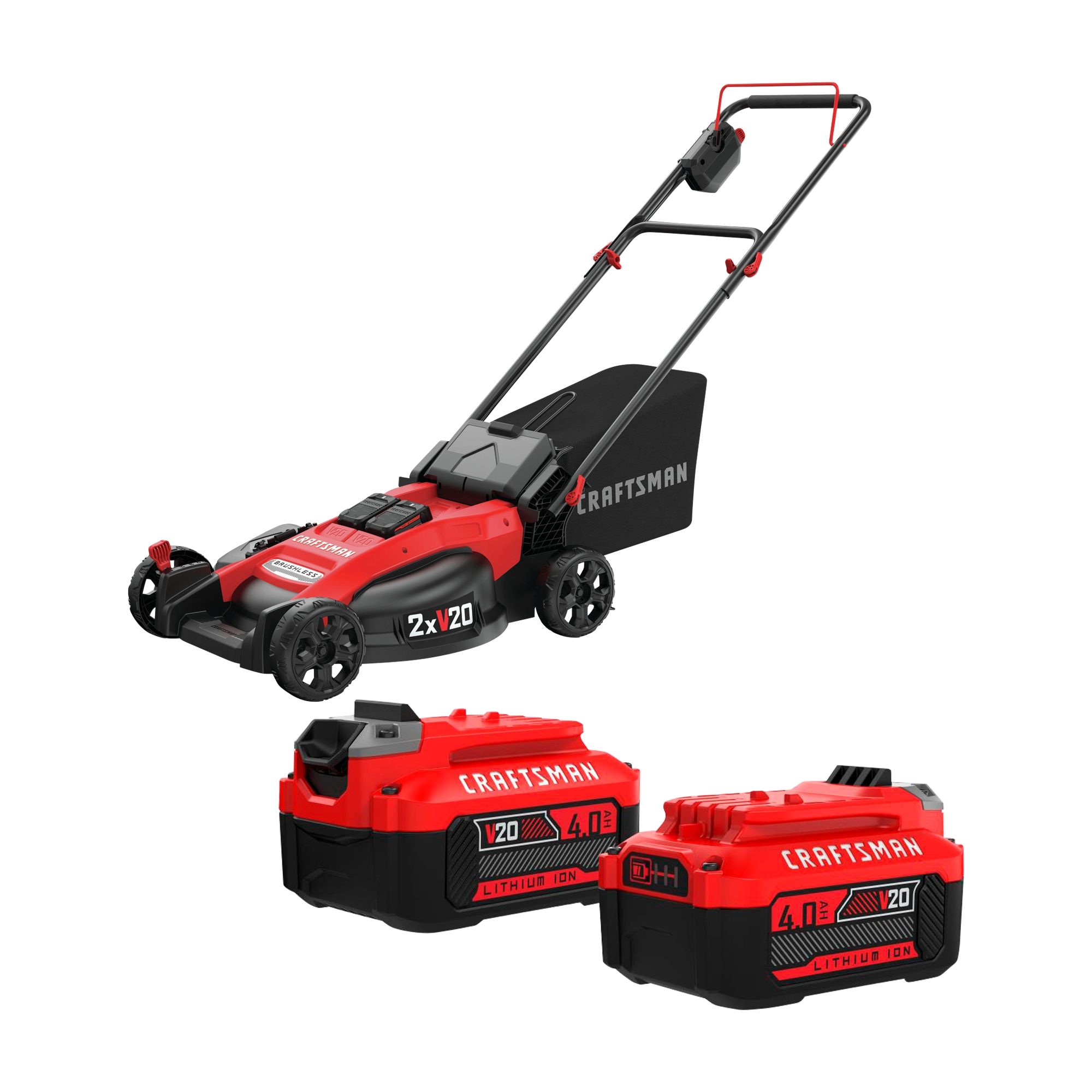As the green expanse of your lawn beckons, the question arises: can your trusty electric lawn mower brave the elements? More specifically, can it withstand a drenching downpour? Let’s unravel the intricacies of electric mower care and explore the implications of moisture exposure.
In a world increasingly attuned to sustainability, electric mowers have surged in popularity. Their eco-friendly appeal, coupled with the serenity of whisper-quiet operation, results in a gentle and efficient way to maintain the verdant beauty of one’s yard. But with these marvels of modern technology comes a sense of trepidation regarding moisture and water damage. Understanding how electric mowers and water interact can prepare you for any unexpected weather conditions.
The crux of the matter lies in grasping the fundamental design of electric mowers. Unlike their gasoline-powered counterparts, which rely on an internal combustion engine, electric mowers operate using batteries and electrical components. This key difference drastically alters their relationship with water. When considering whether an electric lawn mower can get wet, we must assess the design language embedded in its engineering.
Generally speaking, most electric mowers are built with some level of weatherproofing. This doesn’t mean they are entirely waterproof, but rather, they may be resistant to light rain or splashes. The extent of this resistance varies widely among manufacturers. Some models boast IP ratings (Ingress Protection ratings) that indicate their ability to repel dust and moisture. An IP rating of 54, for example, suggests that the mower can withstand slight water exposure, making a quick mowing session in brief showers feasible.
However, it is crucial to delineate between “water-resistant” and “waterproof.” While a water-resistant mower might handle a little drizzle or lawn dew, prolonged exposure to heavy rain can pose significant risks. Proponents of electric mowers tout their convenience, yet leaving your machine out in a torrential downpour is less than prudent. Water splashing onto the battery or electrical components can initiate corrosion, a nemesis for overall performance.
Corrosion is an insidious adversary. It creeps in quietly, slowly damaging vital components, leading to diminished efficiency and even operational failure. Thus, taking preventative measures is paramount. If the clouds gather ominously and the sky threatens to unleash its watery burden, it is judicious to either postpone mowing or move your electric mower to shelter. Weatherproof covers designed specifically for electric mowers can provide a practical safeguard against unexpected showers.
Maintaining your electric mower’s integrity entails more than just evading water. Regular care and servicing play enormous roles in prolonging the lifespan of your device. After a mow, it’s wise to clean the mower’s undercarriage and blade housing. Grass clippings and debris can accumulate, and while this may not be directly related to water exposure, it can potentially trap moisture against sensitive electronic components. Ensure to inspect and clean your mower thoroughly, safeguarding it from the erosion of performance through routine upkeep.
In addition, familiarize yourself with the manual that accompanies your electric mower. Each model comes with its distinct set of guidelines regarding care, maintenance, and restrictions concerning water exposure. Following these specifications can safeguard against accidental damage that may void warranties or necessitate costly repairs.
So, what should you do if your mower does inadvertently get wet? The first step is to power it down immediately and disconnect it from any electrical outlet. Allow your mower ample time to dry out completely before attempting to restart it. Depending on the degree of moisture exposure, using a soft cloth to wipe down accessible components can further assist in preventing corrosion.
While it may be tempting to dry your mower with heat sources, caution is advised. The use of a hairdryer or other heating apparatus can lead to overheating, which may impair essential components. Instead, relying on natural air drying is the safer choice, albeit a slower one.
Many mower owners often ponder whether storage conditions can safeguard their investment. Ideally, electric mowers should be stored in a dry, sheltered environment free from the risk of direct water exposure. Keeping them in a garage, shed, or covered area significantly extends their working order. Additionally, during the off-season, check your mower for any signs of wear and damage, and always store it with a charged battery, ready for action as soon as warmer weather blossoms.
Ultimately, understanding the nuances of electric mower care paves the way for a more harmonious relationship with your gardening companion. The beauty of electric mowers lies not just in their green credentials, but also in the seamless integration of technology with nature. Ensuring they remain protected from the perils of water is but one aspect of caring for these efficient machines. By cultivating a routine of vigilance and maintenance, you can enjoy your lush lawn while ensuring your electric mower remains in prime condition for years to come.
In conclusion, the dilemma surrounding electric mowers and water may seem daunting at first. However, with appropriate care and a proactive approach to storage and maintenance, you can confidently navigate stormy weather without compromising your mower’s performance. Your electric mower can be your steadfast ally in the battle for a beautifully manicured lawn, providing countless hours of reliable service—all while being mindful of our environmental impact.
